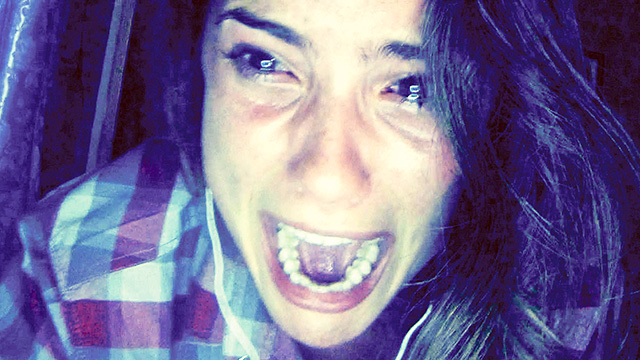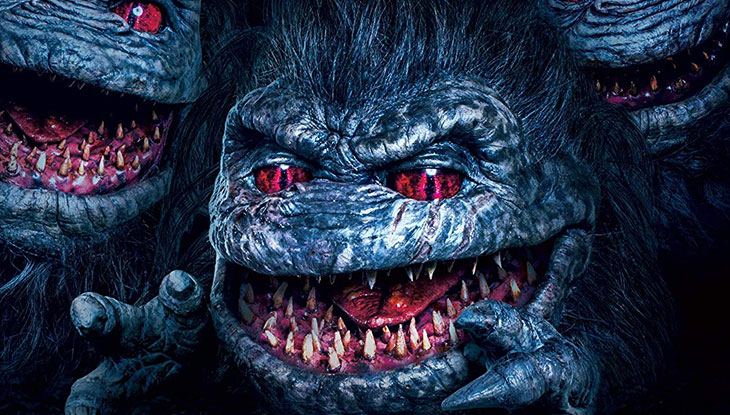You mentioned that you were attracted to the Cybernatural project because of the bullying aspect; do you have a personal bullying story from when you were growing up?
Yes, I’m trying to forget (laughs). I grew up in Soviet Georgia… there was a lot of bullying there. And then I went to the Soviet Army and that was a lot of bullying experience. Not anymore probably, but I’m still afraid of that. Imagine if those things that happen on the Internet happened to me in life, that would be a lot more painful and there would be a lot more witnesses to my humiliation. Right now I don’t see those people and I don’t know them anymore; I changed, I look different, and they probably wouldn’t recognize me anymore.
I guess I was lucky when I was born. Kids are very mean and very ruthless. But now kids have different challenges; everybody can be bullied and anyone can be bullies themselves. It’s scary. I prefer more to be bullied than to be a bully. I would feel much worse if I bullied someone.
Where did the film’s title come from?
The working title we had was Offline, but we thought that it was too general and not obvious. I come from an advertising background, and when you communicate with an audience you have to be very honest about the product. You cannot promise something and it’s not it. You have to have clear communication about this product. This is a chair, it’s supposed to be sit on. It’s not an umbrella. It’s not a table. It is a chair. So we thought Cybernatural was more to the point of what it is. People would come with a certain expectation, and we hope that we give them back their expectation, we entertain them, we teach them a little bit in a good way. We thought it was more truthful to what it is. “Cyberbullying” would be more social, but Cybernatural is more horror, more supernatural.
Have you ever had a supernatural experience in your own life?
Supernatural is something that happens in our minds. It’s how we interpret the unexplainable, what happens when we lay in bed at night, the sounds and shadows we interpret. It’s all a figment of our imagination. The richer our imagination, the more we see.
You mentioned that you had to “invent” some shooting techniques, can you talk about that?
We kind of leaned on the experiences of our ancestors, somebody who’s done this before, you learn it and you try to do it. Here we had the genre rules that we tried to follow but the language that was a new one. We didn’t invent that language; that language — all of us who use computers, who use Skype, who use desktops, who use all these programs — we know that language, we use that language all the time. And that’s the most entertaining part of the film when you realize you know everything that’s going on there; you know the buttons, you know what color they are, you know where they are, how the programs work so it’s kind of your world. Nobody had done that in a feature film before so that needs to be from our everyday experiences coming to the film and that was what we invented, but we didn’t really invent anything because that’s what we do every day.
What we have going for us is that the whole world is using Mac OS, Google, Gmail, Spotify, Skype, so our film turned out to be international in the way that its not tied to the habits of one country’s cultural background. But because these programs are international it turned out that everybody understands this. Americans, Canadians, Georgians, we all use the same rules of engagement.
When you watch this film, the whole thing is from the perspective of one character’s computer screen, do you think it’s best to watch Cybernatural on a computer screen or in a theater?
I think it equally works well when you watch it on your desktop. Something happens and suddenly your desktop that you’re used to, where you spend most of your time living in and working in, suddenly Cybernatural takes over your desktop, it becomes haunted, taking it to the next level. I think it watches really well on the big screen, but it’s the first film that’s equally interesting to watch on the smaller screen. Because usually on the smaller screen you lose epicness. But here you gain something else because it is a story of the small screen. But when you take that small screen and put it in a big one you get that epic Ben-Hur feeling on your little laptop.
Are there any plans for a sequel?
I believe there will be a lot of sequels, because of the world we live in it is impossible that people will not tell the stories that happen to them on the desktop. This is a very democratic time. If you have a computer and you know how to edit, if you have a couple friends who can play actors, there will be even more than with just a video camera, so film is a little bit more democratic. I encourage everybody to get their Skypes on and to tell their stories no matter which genre.
As far as a direct sequel, we’re talking about it but there’s no script yet.
Rock Hard \m/






Stay Connected